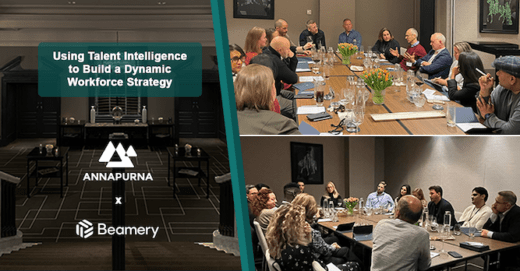I attended the most recent DisruptHR event in London, which always has the most amazing speakers, and was encouraged to hear the talk by Antony Sloan, HR Director of Legal.
Antony spoke passionately about how Ashtons have been able to implement true flexible working across the firm. Some people have opted to work seven days because it works around their personal commitments, whilst others are working condensed hours over fewer days. Antony informed that he uses his smartphone as his alarm clock and that when this goes off in the mornings he then proceeds to check his emails (starting work), which he then if needed, responds to, and that this continues throughout the day whether at home or at work.
The firm has introduced some core hours, but outside of these hours you can work, or not, because as long as you get your work completed, meet the requirements of your clients and colleagues, it doesn’t matter if you are working from a coffee shop or a park, or taking a siesta in the afternoon so that you can be productive for a call in the evening. As long as you get your work completed and meet the targets that are set for you, then it works.
I use this as an example, because, regardless of your view of legal firms, they have been a 9:00-5:00 institution since what feels like the dawn of time. Legal firms are not seen as being particularly employee focused, or flexible in their approach at all. But AshtonsLegal are doing this, and it’s working, which I feel gives a great deal of encouragement for the rest of us.
I’ll add at this point, some roles may always need fixed hours of work and at a fixed location, but not every role at every company.
(In)flexible working policies
For years, I have worked with and for organisations that talk about agile or flexible working. The pinnacle of this appears to be the latest approach to hot-desking, which literally means, if we notice you at the same desk every day we may move you from time to time. And if you need/want the same desk you better get in early. However, the organisation will suffocate you with policies and procedures of do’s and dont’s, because whilst we like the idea of offering flexible working, we don’t trust you enough to actually do what you say you will and we feel we need to police you even more.
So, when I hear of it working, in a legal form of all places, I feel a sense of hope. It continues to sadden me when requests for agile working or working from home policies are constantly being asked for in professional HR networks.
If we need a policy at all, it should read as simply as “we trust that you will complete your work to the required standard, in the required timeframe, wherever you choose to work from”.
You may, of course, need to be careful with sensitive information, but we’ve all heard the news of files being left on the tube and on buses, and no policy in the world will prevent human error. So, instead, we should be requesting the use of common sense.
Doing Things Differently
I’m proud of the flexible working approach we have at Chrysalis, and whilst a small team, our work, our outputs, and our working hours are created from a foundation of trust. We have two days a week together, meeting, talking and collaborating and then we work from wherever we want, to achieve what we need to achieve. And this is what Ashtons have been successful at demonstrating, they trust their people to do a good job, regardless of time in the office.
Working when you want means your employer has to trust you, and in turn, you have to trust your people. We have to do things differently and start treating our employees as adults that we can trust, instead of children that we can’t.
Far too often it’s as though employers are treating their people like unruly teenagers, that if not monitored 24 hours a day we may return to a house of beer cans and mess, because they threw a party in our absence and ignored all of the boundaries of their role.
A World of Good
Gethin Nadin, in his book ‘A World of Good: Lessons from Around the World in Improving the Employee Experience‘, shares with us many ways that we can improve the employee experience and increase the engagement of our people with concepts such as Fika and Siesta, but that these all start with trust. ‘Build It: The Rebel Playbook for World Class Employee Engagement‘ consists of plays to increase the engagement of our employees, built again from a foundation of trust.
So, perhaps it’s time to ditch the terms of agile and flexible working, particularly if we need to police this with endless and complicated policies and procedures, and instead, create workplaces and culture that allow us to work whenever we want. Research shows us repeatedly that regular breaks make us more productive, yet many of us stay fixed to our PC’s all day. I know of people who face reprimands from their boss if they ‘dare’ to take a full lunch break each day. I also know, and it’s great to have Daniel Pink back this up in his latest book ‘When’, that there are certain times of the day that I am able to focus on some tasks whilst at other times of day I am more productive at others.
Wouldn’t it be great if we could work around our own ebbs and flows to ensure we always remain productive, instead of having to try and manipulate our energy levels into the hours of 9:00 – 5:00.
This article is brought to you exclusively by The Business Transformation Network.




